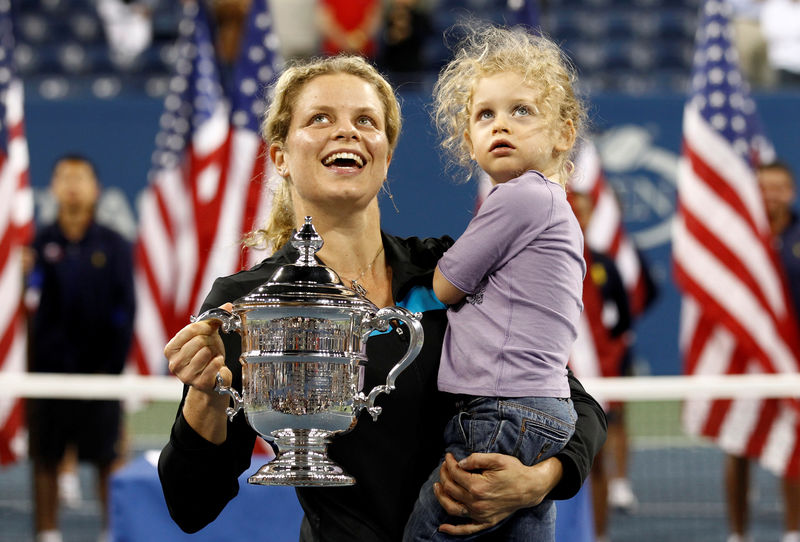(Reuters) - Former world number one Kim Clijsters could struggle to compete with the top players when she returns to the WTA Tour in 2020 as the sport has become more physically demanding during the eight years she spent in retirement, Naomi Osaka's former coach said.
The popular Belgian won four Grand Slam titles before retiring from the sport for a second time in 2012 but in September the 36-year-old announced that she would come out of retirement again because of her love for the sport.
"It's hard to say what I expect from Kim as I don't know how she is physically. Tennis really got way more physical the last few years on the WTA Tour," Sascha Bajin, who guided Osaka to two Grand Slam titles and was named 2018 WTA coach of the year, told the WTA website.
"For sure, she can still turn matches with her championship mindset and playing the right ball in big moments, but I really don't know if that's going to be enough to compete in this modern age."
Clijsters, who first retired in 2007 to start a family, had planned to resume her career in January but then delayed her comeback after suffering a knee injury.
Bajin believes Clijsters has the advantage of experience if she decides to chase a fifth singles Grand Slam title.
"I can't wait to actually see it... it's easier for someone to climb back to the top once you've been there. You know what you have to do. The biggest challenge is going to be competing again on a daily basis... bringing it every day," he added.
"I think I want to say yes she can win another slam but at the same time I'm not sure... it's not going be easy but if she's coming back she can have great success."
Sven Groeneveld, who has coached many WTA players including Monica Seles, Caroline Wozniacki, Maria Sharapova and Sloane Stephens, backed Clijsters to rise to the occasion.
"I expect that Kim will bring an energy and competitiveness that will be hard to match by anybody... her biggest challenge will be to start competing again for a duration of a match and full tournament," the Dutchman said.

"There's no substitute for real competition and the body and game will adapt gradually."